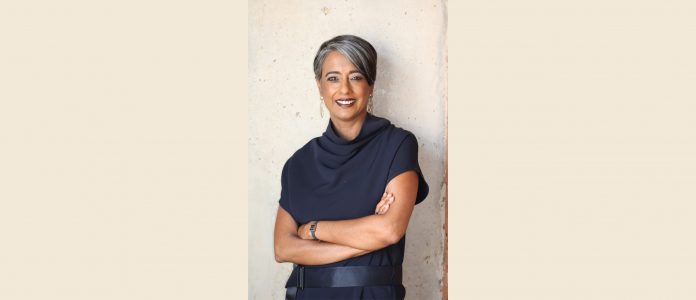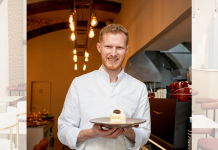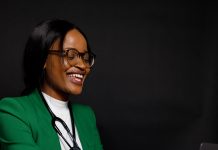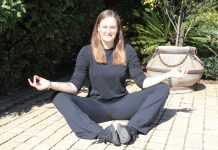Meeting her, the expression ‘don’t judge a book by its cover’ has never been closer to the truth. She might be petite in build, but she has the heart of a lion and is driven to fight for human rights … and life.
Getting to know oncologist Dr Prinitha Pillay over a cup of coffee at Crema in Alberton leaves you wondering how you can ever do justice to a life lived so fully in one article.
Starting with her highest accolades and what these meant to her makes you realise this is one formidable woman.
She worked for and served as president of Doctors Without Borders (DWB) in South Africa and part of the organisation’s governance internationally, which allowed her to use her experience to make a difference on a global level.
Locally, when serving as an independent external panellist on the South African Human Rights Commission that investigated access to emergency services in the Eastern Cape, she aligned her need to give voice to the voiceless.
To add a cherry on top, the Mail and Guardian featured her as one of the Top 10 Women in Health in 2011.
Listening to her stories, you realise a worthy woman earned these accolades.
Medical background
She started her studies at The University of the Witwatersrand in 1991 and got her BSc Hons in molecular biology. While doing her BA in psychology and philosophy, she was accepted into medical school.
She graduated as a doctor in 2003. She joined DWB after completing her internship at a hospital in the Cape Flats and community service at Tintswalo Hospital in Mpumalanga.
‘I realised the training we get as South African doctors allows us to do so much more than most northern hemisphere doctors, as we are trained to do anything and everything.
‘This experience essentially prepared me for my first weekend in South Sudan, when the surgeon fell ill and had to be evacuated; however, there was a patient with a gunshot wound to the abdomen. I had to do the surgery, and the next day we had our first case of suspected Ebola.’
Time and time again, she found herself in a place that resonated with her – fighting for and lending a voice to those who can’t always get theirs heard.
Harsh realities
‘I fell in love with humanitarian work and ended up spending 10 years with the organisation.
‘I started in Lesotho when we were drowning in unnecessary deaths caused by the HIV and TB epidemics. Lesotho showed me what a difference a government with a political will could make to the lives of those with HIV or TB during the time of denial here in SA.’
In North Sudan, while providing care during the conflict, Prinitha wrote a blog to share the devastations and beauty of the people affected.
Thinking back to South Sudan, she is flooded with memories of mud, mud and more mud.
‘We built hospitals and trained local staff to deal with outbreaks of malaria, meningitis and cholera.’
In Sierra Leone, she was in charge of a paediatric and obstetric hospital.
‘Mummies were dying during childbirth and babies were dying of malaria with such high rates that we had to intervene.
‘One image that will always stay with me is as the sun would rise towards the end of the night shift, there would be a mother carrying her deceased child out of the hospital.
‘India is fascinating. The project I worked on providing care for the transgender and LGBQTIA+ community who were ostracised and couldn’t even enter hospitals to collect treatment. Sadly, this continues today the world over.
‘Libya in 2011, when the country was undergoing tremendous change, my colleague and I went to Tripoli during the conflict to provide medical care, as the borders were closed.
‘However, we sneaked across. Due to the bombing in the city, we were always on the move, never staying in one place at a time. It was both challenging and sad to see how almost from one day to the other, high-level hospitals and qualified medical colleagues were struggling to respond to treating victims of the escalating conflict.’
Back home in SA, she worked for the Rural Health Advocacy Project, fighting for better access to care in rural areas.
Time to change
At age 42, she asked herself where she needed to be in 10 years time, and the answer was clear. Cancer is on the rise and she knew she had to use her experience and passion to change the conditions that will face the most vulnerable.
‘I specialised in oncology and completed my master’s in medicine, studying the side-effects and the often forgotten sexual function of women with cervical cancer after receiving chemoradiation.’
Today, she runs a practice aptly named Treating Cancer at Netcare Alberton Hospital.
‘Once a patient hears they have cancer, they experience a hum of silent shock while just wanting to scream. They enter a world of many unknowns. My best day is usually spending time with patients and their families, explaining the diagnosis, discussing treatment options and helping with the weight of the diagnosis.’
She believes empowered, educated patients make informed choices.
‘One of the most difficult conversations is about the financial constraints. Patients who have medical aid expect to get any treatments. People are sold medical aid, meanwhile, they do not know what they signed up for. This is disheartening.
‘Being a doctor allows for my instinct of solidarity for those who find themselves in precarious situations to come to the fore. My longstanding history from childhood during the anti-apartheid era to now feels like a natural thread for equity that runs through my core. So it seems natural to fight for the best possible treatment for my patients. I love it.’
On a personal note
Prinitha grew up in Lenasia and is the youngest of three, with two older brothers.
Some of her fondest childhood memories are carefree, happy days where they walked to school filled with youthful optimism.
When asked about a special someone in her life, she smiled and tells you she fell not only in love with her work while with DWB but also ‘with a Great Dane’.
‘My husband is from Denmark, and we met working in the desert of Darfur in North Sudan. We were part of a team of four. I was the doctor, and he was the nurse. We worked closely together and so, inevitably, fell in love. He fell in love with South Africa, too. And, of course, he is just purely lovely.’
On weekends, she spends as much time as possible with her 91-year-old father.
‘Although he has dementia, he is a pure pleasure to be around. He still retains his wicked sense of humour. So any time with him is precious and well spent.
‘In fact, learning to deal with his dementia has helped me understand the sadness of being ‘locked in’ and how difficult it is for the loved ones. This resonates a lot with the struggles of many with cancer too.’
Some people may not know, but she recently took on
painting. ‘During lockdown and with the passing of my mum, I found painting the most profound way to feel and see my grief. I’m quite chuffed, as I got to sell my art to raise money to buy toys for paediatric patients at the public sector hospitals who are receiving radiation therapy.’
Downtime comprises watching TV series predictably and making sure they cook a good Sunday meal. ‘I’m in love with my Instant Pot Duo.’
The beautiful Klipriviersberg Nature Reserve and eating spots like the Portuguese Restaurante Parreirinha remain some of her favourite places to visit.
Off the cuff:
*Do you prefer food, travel or art?
All three.
*The one thing nobody or very few people know about you
I can never finish a cup of tea. No matter how much is in the cup I always leave half.
*Rain vs sunshine
Rain.
*City life vs outdoors
Outdoors.
*Your ultimate spoil
Good bunny chow.
*Your guilty pleasure
Bread.
*Your pet peeves
When my husband asks me if I have finished my cuppa tea yet?
*Your best movie ever
Two at least: A Beautiful Life and Monty Python’s Search for the Holy Grail
*Currently on your playlist
I like random apple music playlists actually – so it based on the mood of the day e.g. moody blues or backyard jams etc….
*Wardrobe muse haves
Shoes, shoes and more shoes.
*If you could do one thing before you die, what would that be?
`Be ready to die….
* Text: CARINA VAN DER WALT. Photo: ELZAAN PIENAAR






